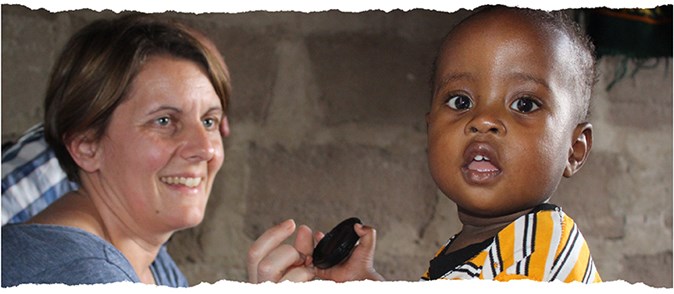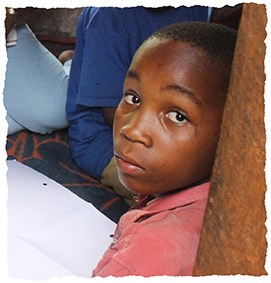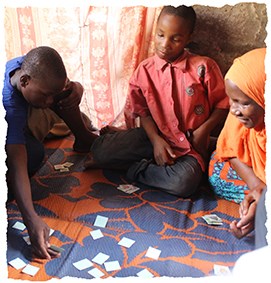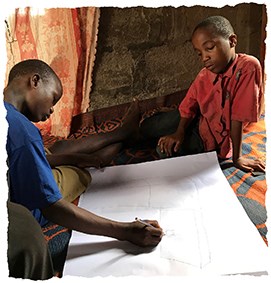
Changing the future for Emmanuel and his family
- Date: 01 March 2019
- Author: Kate Speedie
- In: Tanzania


Having worked with Railway Children for the last two years, I’ve spent a lot of time telling the stories of the children we work with. So it was great to be able to visit Tanzania, see the projects first-hand and meet the children we’re helping for myself.
One little boy who particularly stuck in my mind was Emmanuel – a 12-year-old that our teams had spotted on the streets of Mwanza during their regular outreach work. They patrol the streets morning, afternoon and during the night – looking for the 300 or so children that survive on the city’s streets and they found Emmanuel once he’d been living on the streets for six months. By then he had been attacked, abused and, when they met him, so badly beaten up that they had to take him to hospital.

After that he became a regular at our Kivuko day centre where the staff got to know him and find out why he was on the streets.
His story broke my heart because the turning point in his life was such a little thing – he had started wetting the bed. As a parent of three children, this seemed so insignificant to me, but Emmanuel felt so ashamed that he ran away from home, ending up on the streets instead.
Once Emmanuel had started talking openly to the teams at Kivuko, they began working with his family to see if he could be reunited with them. They discovered so many difficulties being faced that it was clear they needed long term support and we’ve now been helping them for 18 months. Emmanuel and his family were happy to invite me to their tiny home perched in the rocky hillside on the outskirts of the city.
On the way our therapy teams gave me an outline of the problems – Emmanuel’s mother had malaria, his brother was severely disabled and there was also a new born baby to care for – all of which made it impossible for her to work and earn money for the family. Emmanuel and his brother had both dropped out of school, started stealing in desperation and been in trouble with the police. I expected to meet a dysfunctional family bearing hallmarks of chaos and trauma.

We took our shoes off at the door as it was clear that every effort was being made to keep the two-room basic stone house clean. We waited while the baby was changed and then all gathered in one room to talk. Our hosts were keen to introduce themselves and we all played a game as an ice-breaker with a lot of laughter and smiles from everyone.
Then Emmanuel and his brother went with one of our family workers while another talked separately with their mother. I was left holding the baby and talking to one of our team who explained the different ways in which they had been helping the family. It had started with the basics – an emergency food basket delivered every week so they knew the children could eat.
Next we supplied Emmanuel and his brother Charles with the uniform, books, pens and paper they needed to re-enroll at school. We gave medical support to their mother and the disabled boy who also needed physiotherapy to help with movement. After that we gave the mother a small business grant so she could start offering hairdressing from home and earn an income while looking after the younger children.

This intensive, but gradual support has made a lasting impact to the whole family. They are learning to love and care for each other through the therapy sessions and our practical help has meant they can cope with the day to day challenges they face.
The children are thriving in school, which means their future is brighter and their chance of getting jobs and being able to support their own families is greater too. Every member of the family is developing confidence and better self-esteem – they are valuing themselves and each other.
The boys are no longer stealing, and now, if Emmanuel wets the bed it’s not a big deal. Slowly the whole family is finding a sense of hope in their future, together, and having broken the cycle of poverty the ripple effect of our intense support at this early stage will be felt for many generations to come.
The team told me that every single child they have found on the streets, taken back home and then supported with family therapy like this, is still happy and settled at home two years later. That’s a 100 per cent success rate and something I saw working with my own eyes. It takes many months of support, but when you see a family benefiting like Emmanuel’s, it’s worth every minute.